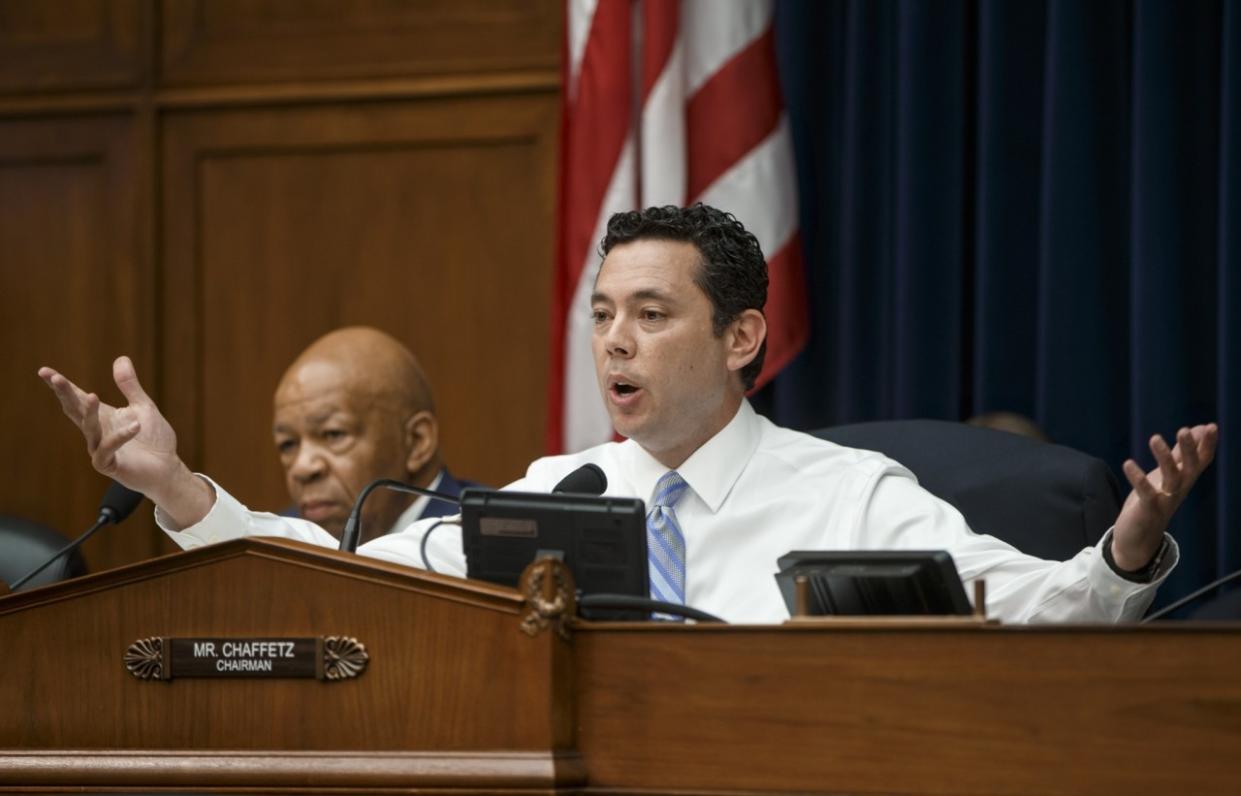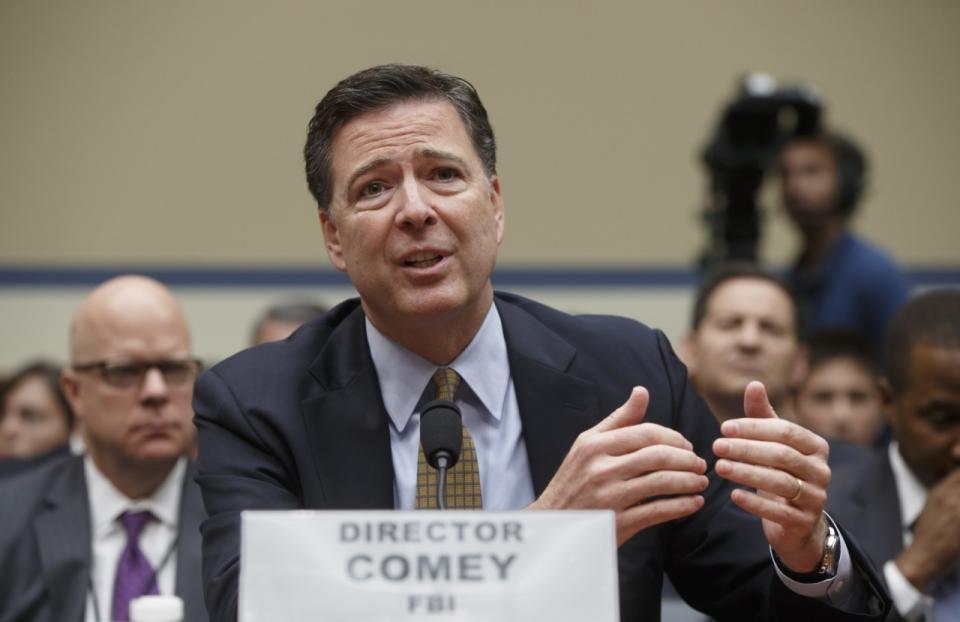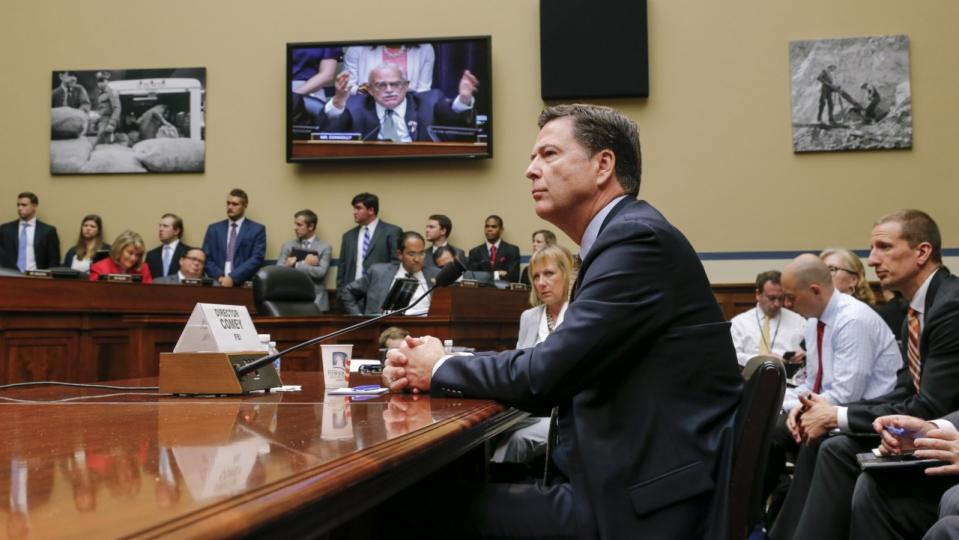Experts: 2nd Clinton email investigation would be an uphill fight

During a lengthy House committee hearing Thursday, Rep. Jason Chaffetz, R-Utah, called for the FBI to investigate whether Hillary Clinton lied about her private email servers while under oath in congressional testimony last October.
Government lawyers and experts in perjury cases said such a prosecution would be an uphill battle.
“The bottom line is that it will be an uphill fight if they try it,” Robert Cattanach, a former Justice Department lawyer, told Yahoo News.
Chaffetz called for the second investigation while questioning FBI Director James Comey about his decision not to recommend a prosecution over Clinton’s handling of classified information as secretary of state.
“Do you need a referral from Congress to investigate her statements under oath?” Chaffetz, chair of the House Oversight and Government Reform Committee, asked Comey.
“Sure do,” Comey said.
“You’ll have one. You’ll have one in the next few hours,” Chaffetz quipped, laughing.
In October, Clinton told Rep. Jim Jordan, R-Ohio, that “[t]here was nothing marked classified on my emails, either sent or received.” The now-presumptive Democratic nominee made the comments under oath while testifying about the 2012 attack in Benghazi, Libya, that left four Americans dead.
However, Comey said three out of the tens of thousands of emails the agency reviewed were actually marked classified in the body of the email, with the letter C in parenthesis. But Comey added that he was not convinced that Clinton knew what the C meant.
Clinton also testified last October that her staff had turned over all work-related emails. Comey said the lawyers missed thousands of emails, though he was unsure whether Clinton was aware of that.

Slideshow: FBI Director James Comey testifies on Hillary Clinton’s use of private email servers >>>
The perjury statutes available to prosecutors would require them to prove Clinton made “materially false, fictitious or fraudulent” statements to Congress last October. Generally prosecutors only go through with these cases when they can prove the person intended to mislead on a material, or important, point.
“These are generally pretty hard cases to successfully prosecute,” said Lee Dunst, a lawyer at Gibson, Dunn & Crutcher and a former assistant U.S. attorney for the Eastern District of New York. “If they made a mistake or if they had bad memory, that’s not enough to mean that somebody should be convicted of perjury. You have to show that they actually knew that what they were saying was false.”
Dunst said two of the most high-profile perjury prosecutions in recent years failed or were later overturned. The baseball player Barry Bonds’ conviction was appealed and thrown out, and pitcher Roger Clemens was found not guilty. (Both were charged with lying under oath while discussing their use of steroids or human growth hormone during their respective sports careers.)
Given that only three of the tens of thousands of emails were marked classified, and that the State Department has said that the marking was in error, Clinton has plenty of room to argue she believed she was telling the truth in October when she said she hadn’t sent or received them.
“She can say, ‘Three emails out of 30,000? If I missed them, I’m sorry I missed them, but that’s not a lie. That’s an oversight,” Cattanach said. “She will have a cover story and explanation.”
“Her answers were narrow and given in a lawyerly manner for the likely purpose of avoiding even the possibility of being accused of giving a false material statement,” said Bradley Moss, a national security lawyer who is involved in a lawsuit against the State Department over public records. “Making a criminal case is theoretically possible, but not something I foresee [the Justice Department] pursuing at this point.”

Republicans were outraged after Comey announced on Monday that he would not recommend charges against Clinton, despite saying her email arrangement was a serious error in judgment. House Speaker Paul Ryan, R-Wis., was among those who called Comey’s announcement a “terrible precedent.”
“The findings of this investigation also make clear that Secretary Clinton misled the American people when she was confronted with her criminal actions,” Ryan said in a statement.
For its part, the Clinton campaign said that Chaffetz’s call for another investigation is a “stunt.”
“This should be called out for what it is — another blatantly political stunt by Republicans to try and keep the issue alive after career DOJ officials declared this case closed because they didn’t get the outcome they wanted,” said Glen Caplin, a spokesman for Clinton.
Related video:


